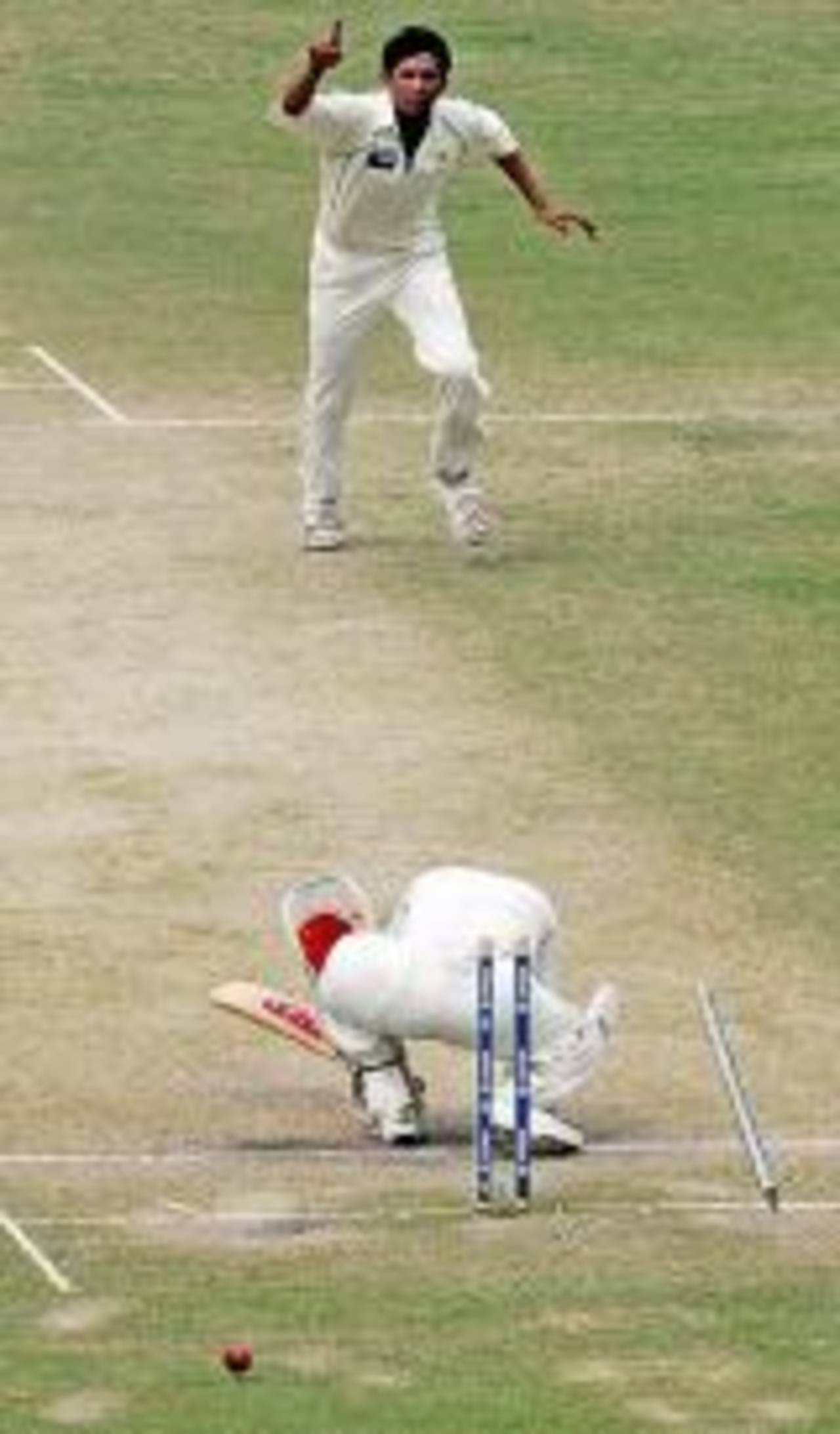Will Delhi support Asif over Tendulkar?
ESPNcricinfo staff
25-Feb-2013

AFP
Kunal Pradhan in the Indian Express feels the franchises of the Indian Premier League will have to strive hard to find a following like their counterparts in other sports, since "it takes time — years, decades — to get such loyalty. And it takes as long for that devotion to translate into good business for those who own the clubs from the day of their inception."
He points out that the auction reflected how franchises sought out Indian players, as most Indians would connect with them, and expresses his doubts whether supporters will opt for country over club.
Picture this: if Brett Lee of Mohali is bowling to M.S. Dhoni of Chennai, sitting in the heart of Punjab, whom will you support? Will you feel enough loyalty for your city that you cheer against a national hero? Will you jump up in joy in Jaipur if, with four runs needed to win, Mumbai’s Sachin Tendulkar is caught on the fence by Shane Warne off the last ball of the match?
The entire auction in Mumbai on Wednesday was a reflection of that same national pride. Ishant Sharma was bought for Rs 3.8 crore and Ricky Ponting for 1.6, Rohit Sharma went for Rs 3.1 crore and Matthew Hayden for 1.5. Corporate India showed where its priorities lay. They wanted crowd pullers, not necessarily the best team available. Nationalism was the mantra, not cricketing logic.
Mahendra Singh Dhoni and his boys might have done world cricket a disservice by winning the Twenty20 Cup in South Africa last year, says Suresh Menon in his blog on espnstar.com. The same generated a buzz around Twenty20, and was perhaps the prime driver behind the formation of the IPL. He voices his concern:
If the 44-day tournament (where the top players will make crores of rupees) is a success, then it is not difficult to see India nudging the world in the direction of Twenty20 cricket - to the detriment of one-day internationals and Test cricket.
A reduction in the number of ODIs may not be a bad thing, but if Test cricket and all that it stands for begins to disappear, then the harm done to the game will be incalculable.
The thought of the market deciding what form of the game should survive is at once scary and abhorrent. No sport can be about making money alone. That is why cricket boards, and indeed the ICC itself needs to be old-fashioned and consider themselves the custodians of the game rather than boardrooms where men in suits squeeze every last penny out of it.
Read Harsha Bhogle's take on the same.
Mathew Varghese is sub-editor (stats) at Cricinfo